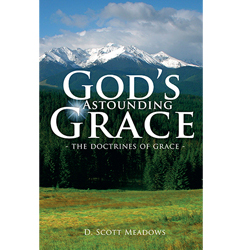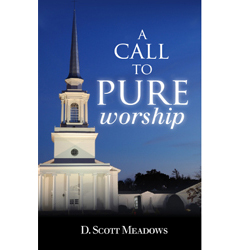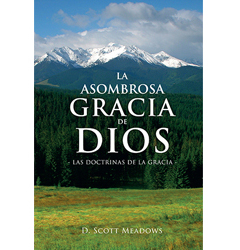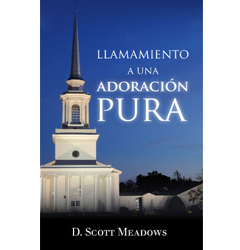

The Abuse and Proper Use of Providence
D. Scott Meadows
By Francis Turretin (1623-1687; Institutes of Elenctic Theology, 6.9.1-8) Summarized and paraphrased by D Scott Meadows
Providence is God’s “eternal destination of all things to their ends [an immanent act in God] and temporal government of all things according to that decree [a transitive action out of God]” (6.1.2). “There is a providence in the world by which all things (even the smallest) are not only at the same time most wisely and powerfully directed, but also so connected with the divinity that it cannot be wholly denied without at the same time denying God” (6.1.3).
I. The Abuse of the Doctrine of Providence
This doctrine of providence can be abused by denial, ignorance, or corruption. Also, some admit it but sin by failure in its application (6.9.1).
A. Sins against providence as to the past
• By murmuring which faults God for His plan and government as unjust. The wicked so murmur (Ezek 18.29; 33.20); also the righteous in suffering while the wicked prosper (Psa 73.1-3). We should rather humbly submit to providence like Job (Job 1.21; 2.10), David (Psa 39.9), and Eli (1 Sam 3.18).
• By desperation when we think it is all over with us and plunge into self-ruin (e.g., Cain, Saul, Judas). We must resist despair by a firm trust in God which strengthens us in trials, like Job, David, and Daniel’s friends (Job 13.15; Psa 23.6; Dan 3.16, 17).
• By excusing crimes on the unreasonable ground that God ordained them. Nothing is more wicked. God is no partner in sin. The wicked are truly guilty because they disobey God’s revealed commands and obey their own depraved lusts. All this is true while He uses their sin to fulfill His holy ends.
B. Sins against providence as to the future
• By security and sloth which fails to use the means instituted by God to excuse idleness or failure to plan ahead. Providence connects second causes and effects, such as precautions against catastrophes and remedies for problems. We should not take foolish risks or rashly presume upon God to protect us.
• By anxiety and distrust which forgets God is our Father who provides the necessities of life (Matt 6.25). Some care for tomorrow’s food and clothing is warranted, but the anxiety and distress usually suffered by unbelievers is wrong for us. We must not think God is asleep in heaven or pays no attention to us. We must rest in His fatherly goodness and expect what we need from Him as we pursue our lawful calling.
• By excessive reliance on second causes as if we do not need God and His blessing at all, like Asa who relied on doctors without prayer (2 Chron 6.12; cf. Isa 38.21; Matt 9.12).
II. The Proper Use of the Doctrine of Providence. It is useful to assert God’s glory and to increase our confidence under trials. Our first duty is to recognize God as the first cause of all things (nothing happens by chance, but He powerfully directs all things) and to cherish the thought that Providence cares for us in all things (1 Pet 5.7). Support for this is found in the truth that all creatures are under God’s power.
A. For earnest desires
• Of holiness, that we may walk more carefully because we are always in His presence who sees and hears all things.
• Of gratitude, that we may worship God alone (Psa 115.1) as the primary benefactor whose hand embraces all second causes, whether men or inanimate objects (Hos 2.21, 22).
• Of patience and humility in adversity as things sent from God, imitating Christ (Luke 22.42), Joseph (Gen 45.8; 50.20), and David (2 Sam 16.10; Psa 39.9). Acquiesce to harsh providences without murmuring. Even pagans commended this virtue. Seneca: “Suffer what you cannot alter and follow, without murmuring, God from whom all things proceed. A good soldier follows his general without groans. Take up God’s commands with zeal and cheerful readiness.” Mistreatment by enemies and even the devil only comes by the nod of God. All things work together for good to us (Rom 8.28). Cups offered by God’s friendly hand, though bitter to the flesh, are healthful to the spirit (Heb 12.11).
• Of repentance, as the adversities He sends are whips calling us to repentance (Lam 3.39; Isa 45.7; Amos 3.6; Heb 12.9, 10).
B. For consolation and a peaceful mind. We can rest in God’s bosom and commend ourselves entirely to His fatherly care, hoping He will bless us in the future, not doubting His deliverance from all miseries in the time to come (1 Sam 17.37; Psa 21.1, 4, 6; 2 Tim 4.17, 18). As those under God’s protection, we have nothing to fear from mere creatures under His power, while we walk in our proper calling. Understanding providence, we will neither be lazy to neglect the means of our own safety and blessing, nor trust in those means, but use them prudently as God commands, and cast all our care upon the Lord (1 Pet 5.7). Whatever happens, we can always say with Abraham, the father of the faithful, “the Lord will provide” (Gen 22.14). Ω
All Rights Reserved. Used with permission. No part of this article may be used or reproduced in any manner whatsoever or translated without written permission.
The following books by D. Scott Meadows are available at Trinity Book Service and Cristianismo Histórico:
Ebook: A Call to Pure Worship | D. Scott Meadows




